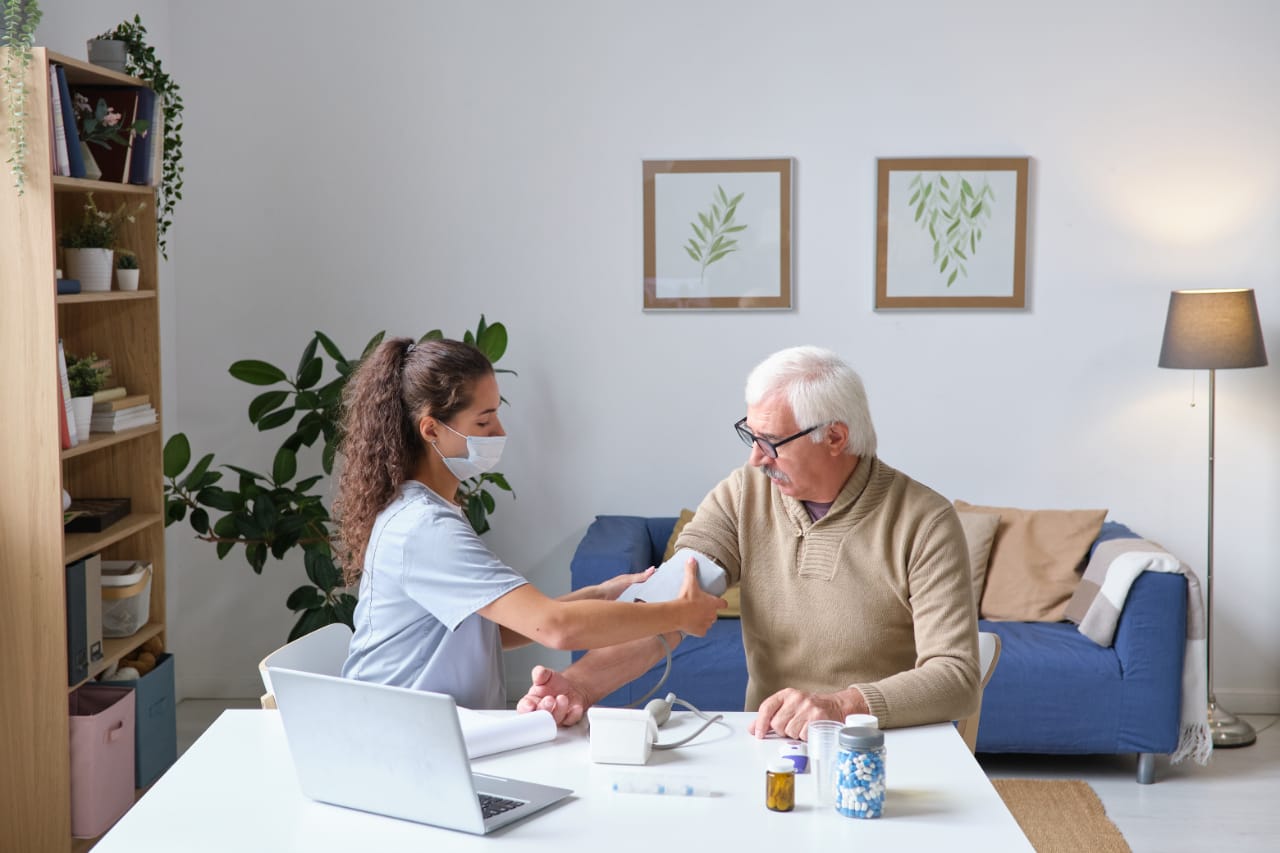
Caring for a senior loved one who has recently suffered a stroke can be a challenging and crucial responsibility. They require not only medical attention but also emotional support and motivation to help them recover.
In this blog, we'll focus on the essential aspects of caring for your senior after a stroke and ensuring a comfortable healing process.
Understanding Stroke
A stroke is a medical condition resulting from poor blood flow to the brain, leading to cell death. There are two main types of strokes:
Ischemic Stroke:
Occurs due to insufficient blood flow to the brain, making it the most common type.
Common symptoms include sudden numbness or weakness on one side of the body, confusion, difficulty speaking or understanding speech, dizziness, problems with walking or balance, and a severe headache.
2. Hemorrhagic Stroke:
Caused by the rupture of a weakened blood vessel inside the brain, often due to high blood pressure.
Symptoms may include weakness or paralysis on one side of the body, bleeding, fainting, difficulty speaking, seizures, and unequal pupils.
If your senior loved one experiences any of these symptoms, it's crucial to seek immediate medical attention. The best Elder care service provider in Kolkata offers round-the-clock emergency hospitalization services for senior loved ones to ensure they receive prompt treatment.
Caring for Your Senior at Home
Taking care of your senior loved one at home post-stroke requires a combination of physical and emotional support:
1. Assisting with Daily Needs:
Your loved one may need assistance with daily tasks like going to the bathroom, bathing, grooming, and eating.
Consider hiring a professional caregiver to make their life easier while encouraging independence.
2. Reducing Fall Risk:
Stroke patients often face a high risk of falling due to muscle weakness and balance issues.
Keep floors dry to prevent slips and falls.
If a caregiver is involved, ensure they assist your senior with stairs and nighttime trips to the bathroom. Keep passage lights on during the night for safety.
3. Addressing Mental Health Needs:
Stroke recovery can bring feelings of depression and the perception of being a burden.
Spend quality time with your loved one to show your love and support, helping them feel valued and content.
4. Physiotherapy:
Stroke can result in physical mobility limitations. Physiotherapy is essential for a faster recovery, aiding in regaining strength and mobility.
Consider availing of physiotherapy services at home from reputable elder care service providers in Kolkata.
Caring for your senior loved one after a stroke can be a rewarding yet challenging experience. It requires a combination of physical assistance, emotional support, and professional help to ensure their comfort and a smoother road to recovery.